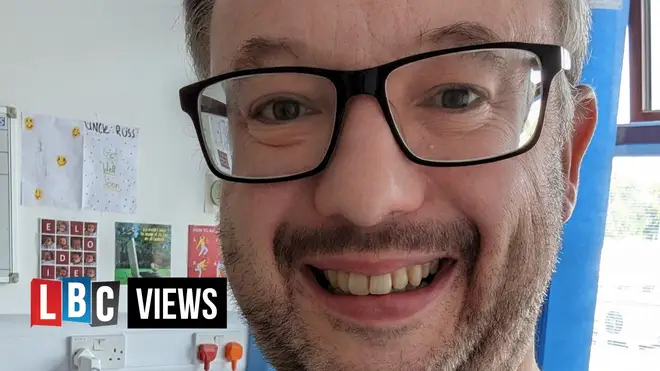
Rachel Johnson 7pm - 10pm
21 June 2023, 13:22 | Updated: 21 June 2023, 14:17

Having been told I might need to stay in the Royal Surrey County Hospital "for a few nights", starting the seventh week has been tough.
I was admitted because of what I thought was a cut that was struggling to heal at the back of the top of my left leg. Little did I know that I actually had a monster of an abscess, a ten centimetre cavity, and an infected hamstring and thigh bone.
This is my story of a stay in hospital for a remarkably and unexpectedly long time. It's one I wanted to tell it because this really could happen to anyone – and it's costing NHS thousands and thousands of pounds.
One moment I was working from home from the job I love at Yahoo Advertising because my leg was in a fair amount of pain, the next, I was facing the prospect of an endless stay until such time as another hospital - Oxford University's Bone Infection Unit – could find a slot to see me. Six and a bit weeks feels like an awful lot longer.
Sometimes I've felt like I'm hurtling towards an infection running out of control (although that hasn't always necessarily been the case), others a little better.
Read more: ‘Impossible to find in the timescale’: Ex-Navy Commander casts doubt on retrieval of the Titanic sub
But throughout, I've had serious bone infection and a big hole where there should be flesh, I know I'm not going to get better without surgery to sort out that bone.
Most of the time I've been on intravenous antibiotics, the first set of which I was on long enough to breed a resistant population to. What would happen if the second line of antibiotics stopped working as well?
Some four weeks into my stay, just as my doctors here at the Royal Surrey (who, along with the nurses here, have been brilliant) thought they were making headway with the referral, I got a text. It was a link to a letter inviting me to an appointment at Oxford's Nuffield Orthopaedic Centre. "Hurrah!" I thought. "Finally!"
The letter said the appointment would be on August 10.
That was two months away. Two months! Two months of wondering whether the antibiotics would keep a lid on things. Two months of little sleep, wound dressing and packing every few hours.
I just didn't understand why I couldn't access the treatment I need. The problem, it seems, is that I'm an unusual case. I'm not well enough to wait my turn at home – far from it – but neither am I a "medical emergency".
I asked for support from the Royal Surrey's Patient Liaison Service (PALS), but this was really a problem at a different hospital trust: Oxford University Hospitals Trust.
The team at the Royal Surrey tried everything, to no avail.
So last Friday, I wrote to my MP for Guildford, Angela Richardson. She promised to look into my case and over the weekend contacted the chief executive of the Royal Surrey.
Whether or not the next piece of news is anything to do with the letter to the MP, I'm not sure, but then I had word that a consultant with all the necessary at St George's in Tooting had agreed to take me on. I’m going there for an assessment.
And then, thanks to the intervention from Angela Richardson (in writing to the CEO of the Oxford trust), the team at the Royal Surrey also had great news in that Oxford would also now support and advise on all my surgery from hereon in as well.
It's taken a lot of doing and an awful lot of waiting, but finally there's light at the end of the tunnel. I have a possible route out of hospital, to recovery, and being back at work.
But goodness, I've had to hustle to get there. And go through six weeks of physical pain and mental anguish. All the while costing the NHS a huge amount of money that could have been better spent elsewhere.